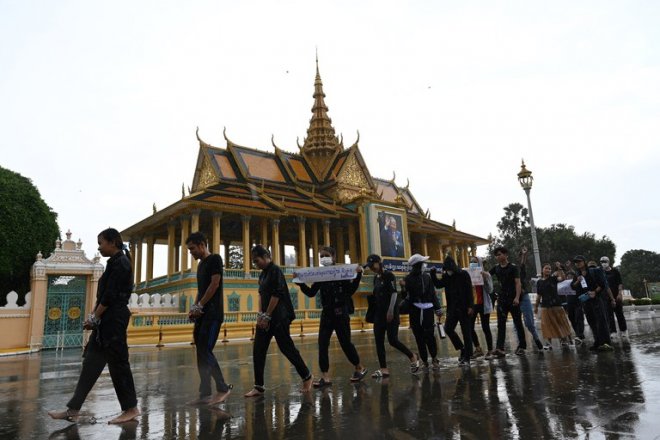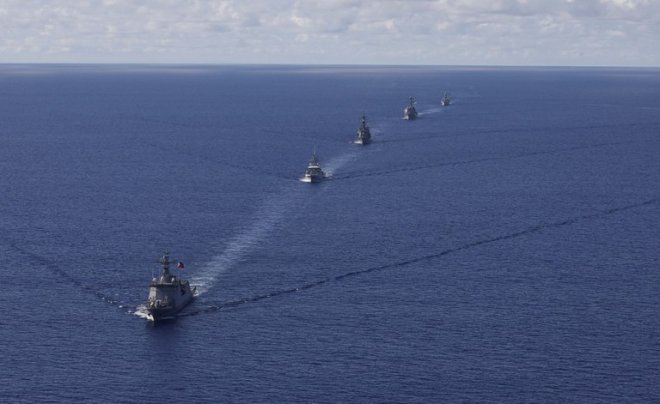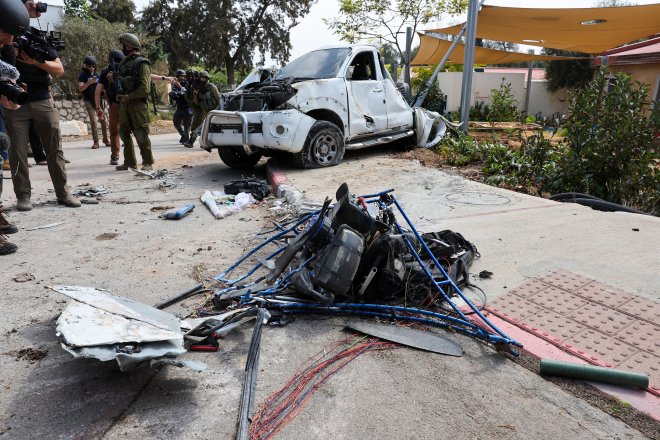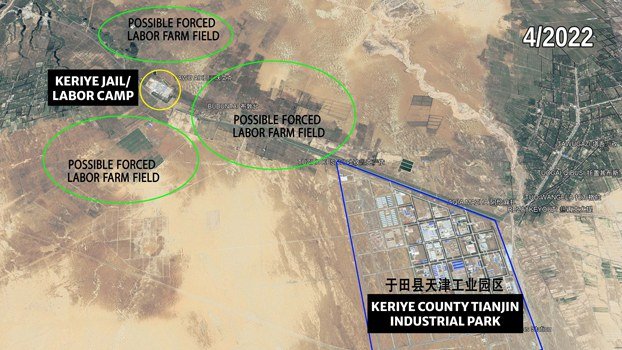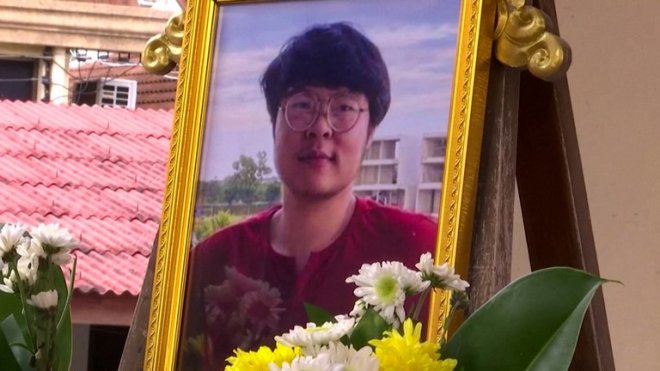Myanmar traders at China border worry about junta’s new ‘pay-by-bank’ system
Merchants at Myanmar’s border with China say the junta’s trade policy is too unstable and that a new pay-by-bank system announced last week will severely restrict their ability to import goods.On June 23, the junta’s commerce ministry announced that importers at northeastern Myanmar’s border with China will have to pay for goods using their local bank accounts beginning on Aug. 1.
Those who have been granted a license will receive a one-month grace period and must complete their imports by Aug. 31 or their license will be invalidated, the announcement said.
The move comes days after the U.S. Treasury Department imposed new sanctions on two junta-controlled banks in connection with the Myanmar military’s purchases of arms from foreign sellers, in a bid to restrict foreign currency transactions.
Analysts said the junta hopes that its new pay-by-bank system at the Chinese border will slow the outflow of foreign currency amid the tightening of sanctions.
On Tuesday, the World Bank noted in a report that, over the six months leading up to June, Myanmar has pursued “a further expansion of export and import license requirements, increased regulation of fuel imports, and additional administrative restrictions on outbound financial transfers.”
“The authorities have announced that imports will be subject to additional scrutiny, with the intent to promote import substitution with domestically produced goods,” the Bank said.
An official from the junta’s Department of Economy and Commerce, who declined to be named because he wasn’t authorized to speak about the subject to the media, framed the pay-by-bank system as a way to “strengthen trade between the two countries and reduce money laundering.”
But Min Thein, the vice president of the Muse Border Rice Association in Shan state, told RFA that the new banking system will “create challenges” for traders, as they will be required to submit proof of purchase via original bank statements and information about the income they generate to the junta’s trade department.
Additionally, the Department of Commerce will only grant import licenses based on the total amount of money in an applicant’s bank account. Also, 65% of foreign currency income from exports must be sold to the regime at the central bank’s currency exchange rate, which is substantially lower than the market rate.
As of Tuesday, the official exchange rate for the U.S. dollar hovered around 2,250 kyats, while the market rate was 3,200 kyats. On Thursday, the official exchange rate for the Chinese yuan was 290 kyats, while the market rate was 435 kyats.
Controlling foreign currency
A trader at the border who, like others interviewed for this report, spoke on condition of anonymity, citing security concerns, told RFA that the junta’s directive is aimed at controlling all foreign currency used for trading.
He said requirements on the reporting of income and selling of 65% of foreign currency to the junta at the official exchange rate “won’t work for traders,” and will likely lead to a trade decline.
A similar pay-by-bank system was put into place by Myanmar’s former junta, which ruled the country until 2011, but was later rescinded after traders complained that it forced them to deposit money in advance of their deals, requiring more personal outlay and leading to trade delays.
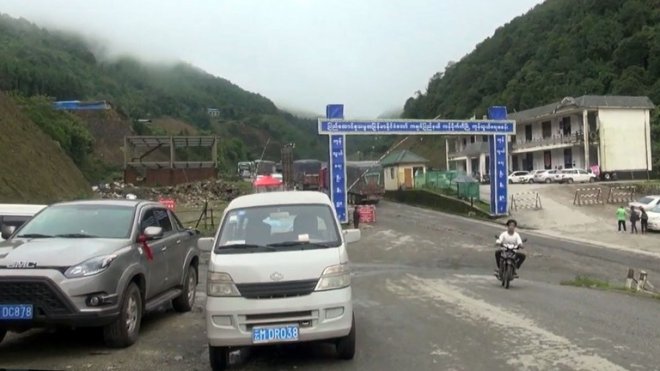 Kan Pike Te gate at the China-Myanmar border in Kachin state in 2019. Credit: RFA
Kan Pike Te gate at the China-Myanmar border in Kachin state in 2019. Credit: RFA
A trader at the border in Shan state’s Chin Shwe Haw township, which is one of Myanmar’s five official border trade posts with China, said the junta’s frequent changes to the country’s trade policy had left importers and exporters scrambling to keep up.
“We don’t exactly know which way to go,” he said. “The trade system changes too often. When one system was announced not long ago, another new system was ordered to replace it. Importers and exporters are all confused."
Other sources told RFA that if the new system slows trade, those who rely on the exchange of goods will also suffer.
A trucker at the border said that his line of work would also be impacted by the new policy.
“If traders have to pay too much to the government, we truckers will be out of work, too,” he said. “We will have to wait and see how it’s going to turn out, as the new policy was just announced, but I expect that the flow of goods will definitely be slowed."
Junta officials have pointed to the success of a similar pay-by-bank system implemented along Myanmar’s border with Thailand since Nov. 1.
But a trader working along that border told RFA that the success is largely due to the strong banking connections between Thailand and Myanmar, while in some cases there aren’t even banks on the Chinese side of the border with Myanmar.
Slowing trade
Trade along Myanmar’s 2,200-kilometer (1,370-mile) border with China mostly takes place in the border towns of Lweje and Kanpaikti in Kachin state and in Muse and Chin Shwe Haw in Shan state.
Trade with China was steady prior to 2019, but was impacted by the COVID-19 pandemic and the political crisis in the aftermath of Myanmar’s Feb. 1, 2021 military coup d’etat.
According to the junta’s Department of Commerce and Industry, exports to China from Muse – which sees the heaviest flow of trade across the border – amounted to US$3 billion in the fiscal year from 2019-2020, while imports were worth US$1.8 billion.
As of May for the current fiscal year, exports had reached US$274 million, while imports were valued at US$157 million.
Translated by Myo Min Aung. Edited by Joshua Lipes and Matt Reed.
[圖擷取自網路,如有疑問請私訊]
|
本篇 |
不想錯過? 請追蹤FB專頁! |
| 喜歡這篇嗎?快分享吧! |
相關文章
AsianNewsCast








